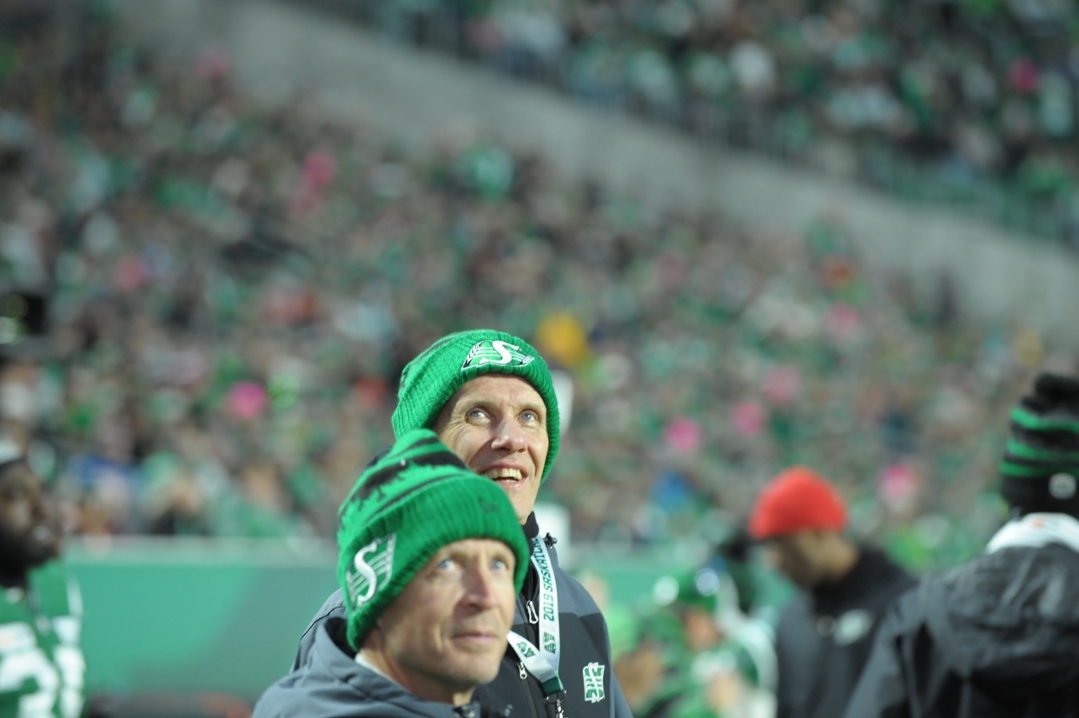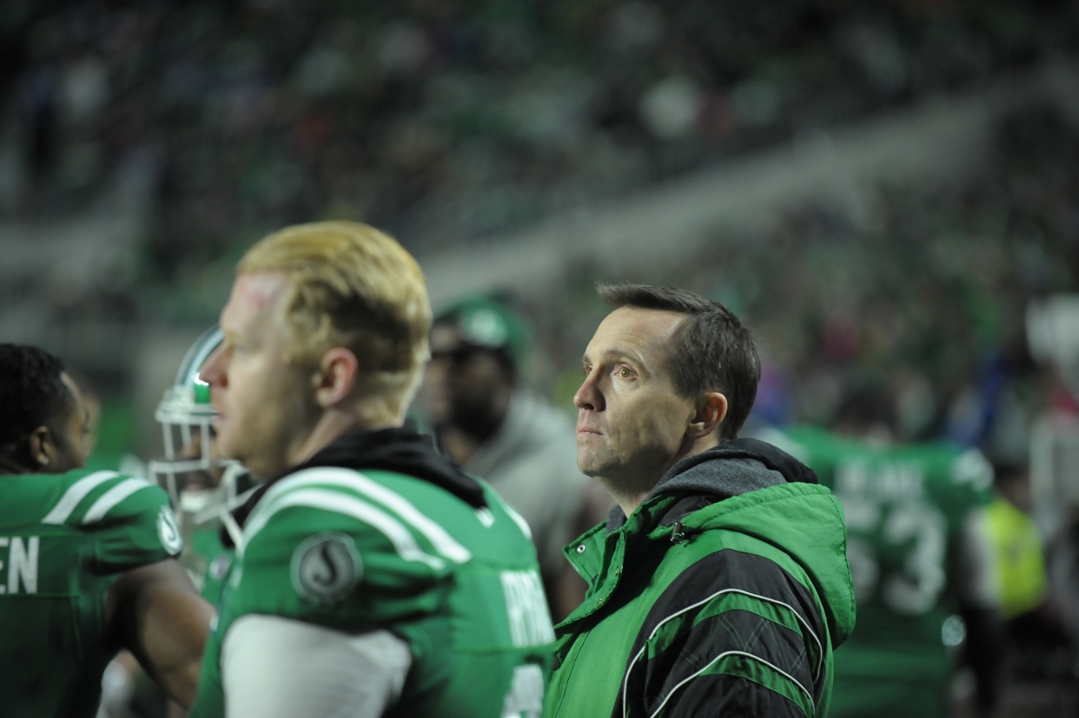
Staying healthy on and off the field
USask roots run deep for Riders medical staff.
By Katie Brickman-YoungFive University of Saskatchewan (USask) alumni are tasked with keeping the Saskatchewan Roughriders healthy and on the field.
Dr. Martin Heroux (MD’01) has been a physician with the Roughriders for the past 12 seasons. He took over as head physician in 2016 and without really thinking about it, brought together a team of highly successful and skilled doctors and surgeons – with one thing in common – a USask education.
“To be honest, it was just how it worked out,” said Heroux.
Joining Dr. Heroux is Dr. Warren Dufour (MD’88), Dr. James Fraser (MD’81), Dr. Jordan Buchko (MD’09), and Dr. Michael Nicholls (MD’90).
Fraser has been with the Riders since the 1990s, but it was Heroux who brought in Dufour, Buchko and Nichols in 2016.
“Looking back at it, it makes sense that we are all USask grads because we are all from here, we all understand the culture of Saskatchewan, the team and the importance of the team to the community,” said Heroux. “I think it gives us a good foundation to do our work and an extra sense of appreciation for the position, having grown up in this province.”
Throughout the season, the medical team helps players stay healthy, but also come back from an injury, while working closely with administration on updates and status of players.
“You know get to know the individual players and you know what they are going through. When they make a great play, you feel great for them,” said Dufour.
This experience has been a rewarding one for both Dufour and Heroux.
“I don’t know if there is anything more fun than standing on the sidelines for a game at Labour Day when the stadium is completely full, the fans are going crazy and you are a part of a game that so many people care so deeply about,” said Heroux.
All five doctors also own their private practices or work in an alliance in Regina, where the work can be quite solidary. When working as the medical team for the Riders, the collaboration and learnings are constant.
“In this case, we are around our team and we discuss the players and are constantly learning from each other,” said Dufour. “That just makes it so much better to be working with a team of people rather than everyone doing their own little bit. There is a cohesiveness to this medical team, which makes it fun and interesting.”
When a player comes in injured off the field, the medical team comes together, with one person examining the player, while the others watch and provide insights.
“The roles were quick to define and each situation has everyone jumping in where they can, said Heroux. “As head physician, I make the final call on the decisions, but it is very collaborative approach. Before a decision is made about an injury or a player’s return plan, the group is usually aligned and in agreement.”
Each week, the medical team has an early morning breakfast meeting to discuss players, their programming and the management plan to get them back on the field as quickly as possible.
“I find it fascinating to hear about the different takes on injuries,” said Heroux. “Everyone has different experiences and we can learn from each other.”
There are decades of experience among the five doctors, including Nicholls providing Olympic Game coverage, Dufour providing high-level game coverage for university sports and Fraser is a highly regarded orthopedic surgeon.
It was their time at USask that helped them get them to this position – both in class and out of class experiences.
“Reflecting back on my education, I think the U of S gives you a lot of opportunity to do clinical work at an early stage, so you are able to get comfortable working on difficult situations and working with different people and making the call,” said Heroux. “I always had good supervision when I was in those situations, but I also had the opportunity to be exposed to them and that helped me when I went out into my own practice. Those experiences helped me to deal with the situations that we are forced to deal with on a daily basis in sports medicine and in the daily clinic.”
As medical professionals, the team has seen and worked on some gruesome injuries, but some of the most difficult ones are brain injuries.

“There are the serious ones and there are the difficult ones,” said Dufour. “One of the most difficult injuries we deal with are concussions. Those give us so much heartache and reflection on letting them play. With a broken ankle or something like that, we know that in six weeks, it will heal, but a concussion gives us the most difficulty in figuring out what to do.”
With so much riding on games, including wins, playoffs, money, and players’ contracts, a concussion is the hardest injury to work through for the doctors.
“We have to make the hard decision to pull a player for the best of their health,” said Heroux. “Sometimes doing the right thing is the most difficult option. But, we are there to protect the players, even from themselves sometimes.”
Growing up in the province and cheering on the team comes second nature to Heroux and Dufour, but now being a part of the team, it is different.
“I was born and raised in Saskatchewan. I’ve been a Rider fan my whole life. To say that I’m not a fan now is probably a bit of a lie,” said Heroux. “But, as a professional, it is incumbent on us to not let any of our emotions taint our clinical decision-making.”
Even with being a fan, there is always a line they aren’t willing to cross, despite the number of requests.
“We can’t and will not get you an autograph,” said Heroux jokingly. “That happens to me all the time, but we try and give the players their space and treat them with respect.”
The Saskatchewan Roughriders will open their 2020 regular season on June 19 against Montreal.


